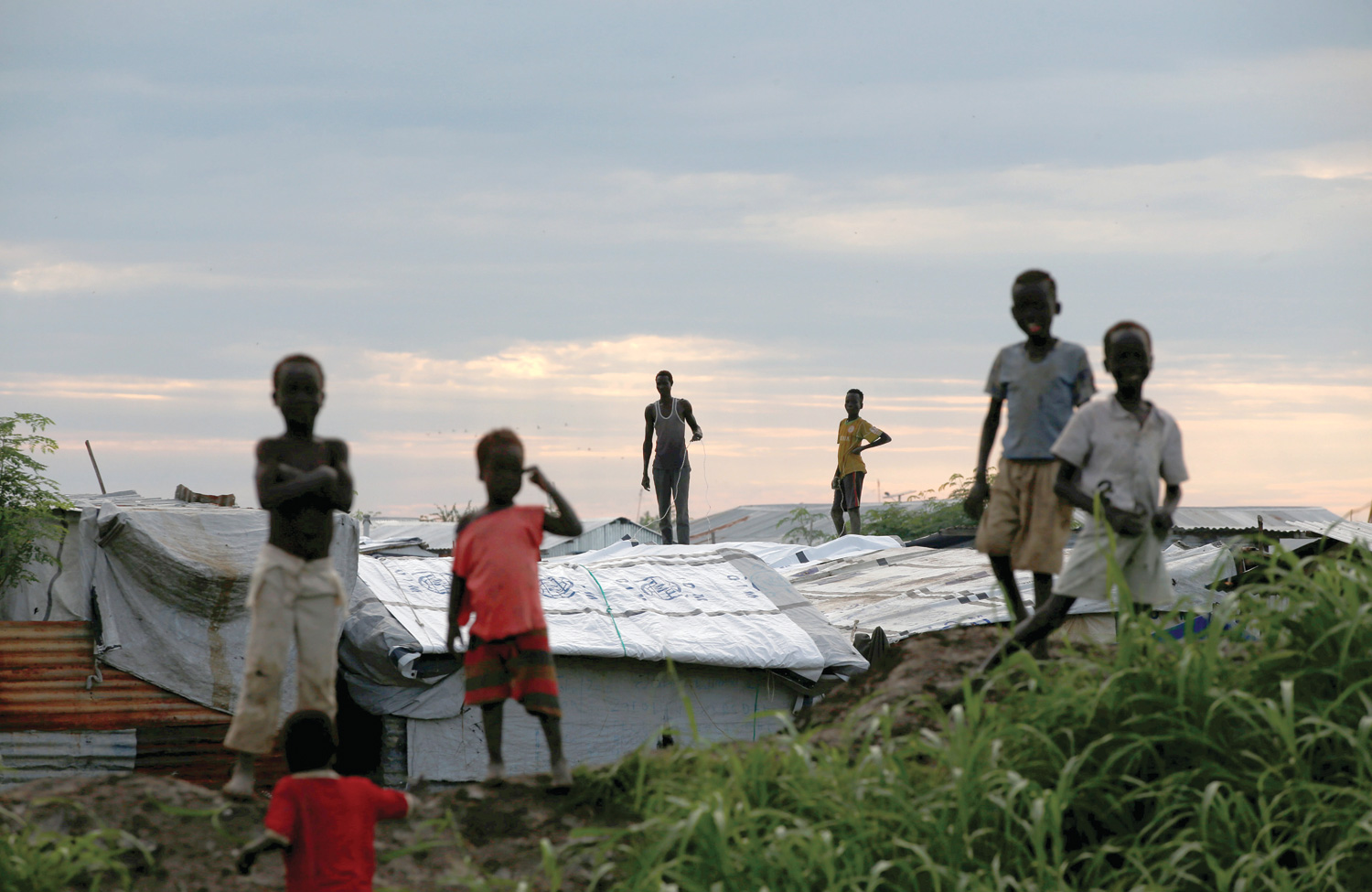

MALAKAL: Yellow flowered vines crawl through empty window frames and up crumbling brick walls. Electricity poles are slanting along the road, cables hanging dead from their arms. The sign for Malakal’s city council is riddled with bullet holes.
South Sudan’s President Salva Kiir and rebel groups may well have signed a peace agreement last Wednesday to end a civil war that has killed at least 50,000 people, but those who have fled the country’s second largest city, a merchant hub turned ghost-town, are still fearful of going back.
Josephine Adiemis, who lives with her family of eight in a nearby camp run by the United Nations, does not believe it is safe yet to go back home. Squatters may have sneaked into her house amid the chaos, the 42-year-old said.
“There is no peace now. If I go back before peace implementation, I will maybe be killed by that person that is still in my house,” Adiemis said, sitting in front of a registration office at the UN camp, overlooking hundreds of makeshift houses covered in white plastic sheets.
Simon Pakuang, who ran away from his village near Malakal, situated on the White Nile, can relate to this.
“The fighting broke out, and then so many people were killed. That’s why people ran,” said the 63-year-old, now living in the camp alongside some 25,000 people.
Violence flared up in the area in 2015. South Sudan had plunged into warfare in 2013, two years after independence from Sudan, when a political dispute between Kiir and then vice-president Riek Machar erupted into armed confrontation.
In total, an estimated quarter of South Sudan’s population of 12 million has been displaced and its economy, which heavily relies on crude oil production, ruined.
In Malakal, a former hub for goods shipped to neighbouring Sudan, tables lie in abandoned schools, damaged religious places can be seen, and cars rot in fields. The UN camp near Malakal was meant to be temporary, said Hazel de Wet, who runs the UN mission in Malakal’s Upper Nile region. — Reuters
Oman Observer is now on the WhatsApp channel. Click here



